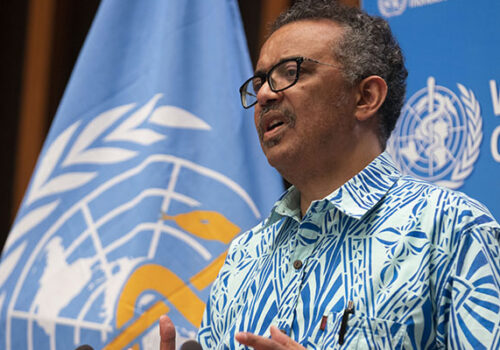Pfizer and BioNTech have shared additional Phase 1 safety and immunogenicity data from their ongoing U.S. study of the BNT162 mRNA-based vaccine program against SARS-CoV-2, which has advanced into Phase 2/3 evaluation.
The newly released manuscript describes key safety and immunogenicity data from the U.S. Phase 1 trial for the BNT162b2 vaccine candidate, which at 30ug recorded 7 days after the second dose elicited SARS-CoV-2-neutralizing geometric mean titers (GMTs) in younger adults (18-55 years of age) that were 3.8 times the GMT of a panel of 38 sera of SARS-CoV2 convalescent patients, and in older adults (65-85 years of age) the vaccine candidate elicited a neutralizing GMT 1.6 times the GMT of the same panel, demonstrating strong immunogenicity in younger and older adults.
Further, across all populations, BNT162b2 administration was well tolerated with mild to moderate fever in fewer than 20% of the participants. As previously announced, these data informed the companies’ decision to advance a 2-dose regimen of the 30µg dose level of BNT162b2, which encodes an optimized SARS-CoV-2 full-length spike glycoprotein (S), into a Phase 2/3 evaluation. The manuscript is now available on an online preprint server at https://www.medrxiv.org/content/10.1101/2020.08.17.20176651v1 and is concurrently undergoing scientific peer review for potential publication.
“Proud to share our findings”
The companies are continuing to analyze data from the Phase 1 trials in the U.S. and Germany. T cell immune responses elicited by BNT162b2 are being evaluated in the German study and the companies expect to submit the data for peer review and potential publication.
The companies previously announced that BNT162b2-vaccinated human participants displayed a favorable breadth of epitopes recognized in T cell responses specific to the SARS-CoV-2 spike antigen, as compared to the BNT162b1 candidate, and that BNT162b2 demonstrated concurrent induction of high magnitude CD4+ and CD8+ T cell responses against the receptor binding domain (RBD) and against the remainder of the spike glycoprotein that is not contained in the BNT162b1 vaccine candidate.
“The totality of the clinical and preclinical data informed Pfizer and BioNTech’s decision to select BNT162b2 as the lead candidate to advance into pivotal trials. We are proud to share our findings with the scientific community as we continue our work to deliver a safe and effective vaccine to combat this devastating virus,” said Kathrin U. Jansen, Ph.D., Senior Vice President and Head of Vaccine Research & Development, Pfizer. “We are especially pleased to offer these early data showing our vaccine candidate’s promising safety and immunogenicity profile from the U.S. trial and we look forward to sharing T cell immune response data from the German trial in the near future.”
“It is important to us to continue sharing data and related information on our COVID-19 vaccine lead candidate,” said Ugur Sahin, M.D., CEO and Co-Founder of BioNTech. “The favorable safety profile of BNT162b2 and the breadth of T cell responses we previously announced have supported our decision to select this candidate for the pivotal Phase 2/3 study. As of today, we have already dosed more than 11,000 participants with BNT162b2 in that study.”
Commence the global Phase 2/3 study
The totality of data contributed to the decision by Pfizer and BioNTech to commence the global (except for China) Phase 2/3 safety and efficacy portion of the clinical study to evaluate BNT162b2 against COVID-19. The study is now actively enrolling in the U.S., Argentina and Brazil. Additional enrollment is planned in Germany, Turkey and South Africa. The study is an event-driven trial that is planned to enroll up to 30,000 participants between 18 and 85 years of age. The Phase 2/3 trial enrollment to date has exceeded 11,000 participants with a second dose underway.
BNT162b2 remains under clinical study and is not currently approved for distribution anywhere in the world. Assuming clinical success, Pfizer and BioNTech are on track to seek regulatory review for BNT162b2 as early as October 2020 and, if regulatory authorization or approval is obtained, currently plan to supply up to 100 million doses worldwide by the end of 2020 and approximately 1.3 billion doses by the end of 2021.
Photo: BioNTech production








